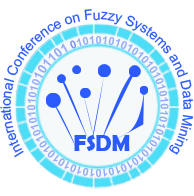Invited Speaker

Dr. Renying Zeng, Professor
Chongqing Key Laboratory of Operations Research and System Engineering, China; Saskatchewan Polytechnic, CanadaSpeech Title: Analytic Center Cutting Plane Algorithms and Economic Equilibrium Problems
Abstract: Cutting planes were proposed by R. Gomory in the 1950s as a method for solving integer programming and mixed-integer programming problems. Another fundamental paper of cutting plane method was by J. E. Kelley in 1960. The theoretical approach of analytic center cutting plane methods started from J.-L. Gon and J.-P. Vial in 1990. In 1999, O. du Merle developed an implementation of the method of the prototype, which was successfully applied to solve several nontrivial convex optimization problems. Some later developments of analytic center cutting plane methods have been proposed for solving various variational inequalities. Recently, S. Y. Balaman used cutting plane methods to solve problems in management of biomass-based production chains, V. Franc, S. Sonnenburg and T. Werner discussed the applications of cutting-plane methods in machine learning.
Nash equilibrium is achieved in a game when no player has any incentive for deviating from their own strategy, even if they know the other players' strategies. In economic theory, the Nash equilibrium is used to illustrate that decision-making is a system of strategic interactions based on the actions of other players. It can be used to model economic behaviour to predict the best response to any given situation. A Walrasian market is an economic model of a market process in which orders are collected into batches of buys and sells and then analyzed to determine a clearing price that will decide the market price. This is also referred to as a call market. Walrasian equilibrium requires that both agents consume their Marshallian demands given prices and also that these demands are compatible. So what people want to do is set relative prices, find the Marshallian demands of the two agents, and to see whether or not demand equals supply in the markets.
In this talk, we present an example of economic equilibrium problem whose domain is a convex body. We present also analytic center cutting plane algorithms for solving variational inequalties over convex bodies. Our algorithms either stop with a solution of the variational inequality after finite number of iterations, or we may find a sequence that converges to the solution of the variational inequality. Our analytic center cutting plane algorithms are also constructive solutions of economic equilibrium problems with convex domains. Our analytic center cutting plane methods may be used in machine learning.
Biography: Dr. Renying Zeng received his Ph.D. degree in Mathematics from University of Regina, Canada. He spent one month shorter than three years to complete his Ph.D. research and study. After receiving his doctorate degree, Dr. Jonathan Borwein (who was President of Canadian Mathematical Society) offered him a Visiting Researcher position at Simon Fraser University, Canada. Dr. Zeng was a Visiting Professor at North Dakota State University, USA, form August 2001 to August 2003. He was also a professor in the Business School at Chongqing University, a professor in the College of Mathematical Sciences at Chongqing Normal University.
In 1997, Dr. Zeng received the “Excellent Faculty Award” from Chongqing Normal University for his excellence in teaching and research. He was also a recipient of “Excellent Research Article Award” from Chongqing Society of Science and Technology, as well as a recipient of “Excellent Research Paper Award” of the Society of Industrial and Applied Mathematics of Sichuan Province. Dr. Zeng was a director of Chinese Society of Decision Making Science, a director of the Society of Industrial and Applied Mathematics of Sichuan Province, and one of two chairmen of Functional Analysis Society of Chongqing City. (City of Chongqing has a population of 32 million and more than two dozens of universities).
Dr. Zeng is a lead faculty at Saskatchewan Polytechnic in Canada from 2003 to at present. From 2010 to at present, Dr. Zeng is a professor at Key Laboratory of Optimization and Control—Chinese Ministry of Education, and a professor at Chongqing Key Laboratory of Operations Research and System Engineering. Dr. Zeng is a reviewer and/or editor of some academic journals such as Journal of Optimization Theory and Applications, Asia-Pacific Journal of Operational Research, Linear Algebra and Applications, as well as American Journal of Applied Mathematics. Dr. Zeng has more than fifty research articles published, including operator theory; operations research; optimization theory, applications and algorithms.

